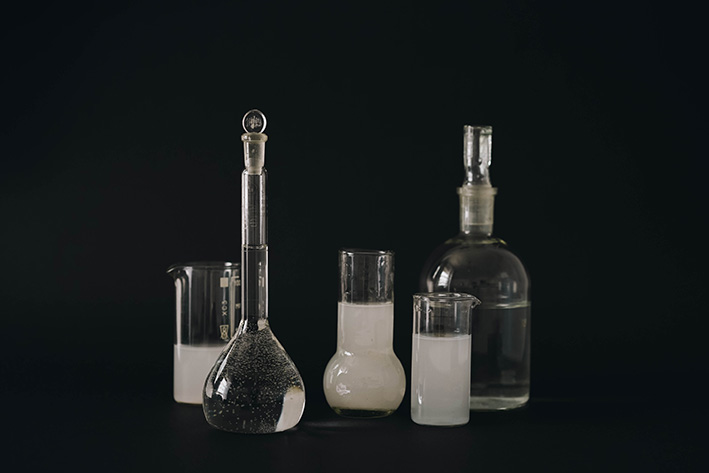Course Information
Course Description
The Chemistry course is designed to enhance learners' knowledge, understanding, and skills in various aspects. It covers in-depth subject content, promotes independent thinking, and emphasises the application of knowledge to both familiar and new situations. The course develops critical skills such as evaluating different information sources, logical reasoning, presenting coherent arguments, making informed judgements and decisions, and effective communication in English. Practical skills are also a key focus, with a dedicated practical examination to assess proficiency in scientific practices.
Course Objectives
The objectives of the Chemistry course are to:
- Acquire in-depth knowledge and understanding of the subject, including practical skills with a focus on efficiency, accuracy, and safety.
- Apply the scientific method, while being aware of the limitations of scientific theories and models.
- Develop data analysis and evaluation skills, drawing well-supported conclusions, and fostering scientific attitudes such as objectivity, integrity, curiosity, initiative, and inventiveness.
- Cultivate effective scientific communication skills, utilising appropriate terminology and scientific conventions.
- Understand the responsibility towards others, society, and the environment, promoting a sense of care and ethical awareness.
Course Outline
The Chemistry course covers three main areas:
1. Physical chemistry:
- Exploration of the fundamental concepts and principles that underpin the physical properties and behaviour of matter.
2. Inorganic chemistry:
- Study of the properties, structures, and reactions of inorganic compounds and elements.
3. Organic chemistry:
- Focus on the structure, properties, and reactions of organic compounds, including the study of functional groups and organic reactions.
The course also includes the application of analytical techniques in the field of chemistry.
Student Acquisitions
Upon completion of the Chemistry course, students will:
- Demonstrate in-depth knowledge and understanding of key concepts in chemistry.
- Apply theoretical knowledge to real-world scenarios, showcasing problem-solving skills.
- Possess advanced practical skills, including accurate and safe scientific practices.
- Analyse data, evaluate information, and draw logical conclusions.
- Communicate scientific ideas effectively using appropriate terminology and conventions.
- Exhibit a responsible attitude towards others, society, and the environment.
Learning Methodologies
The Chemistry course employs a variety of learning methodologies to ensure comprehensive understanding and engagement. These include:
- Interactive lectures and discussions to explore theoretical concepts.
- Practical laboratory experiments to develop practical skills and reinforce theoretical knowledge.
- Problem-solving exercises to enhance critical thinking and analytical abilities.
- Research projects and case studies to foster independent learning and application of knowledge.
- Regular assessments and feedback to monitor progress and support continuous improvement.





